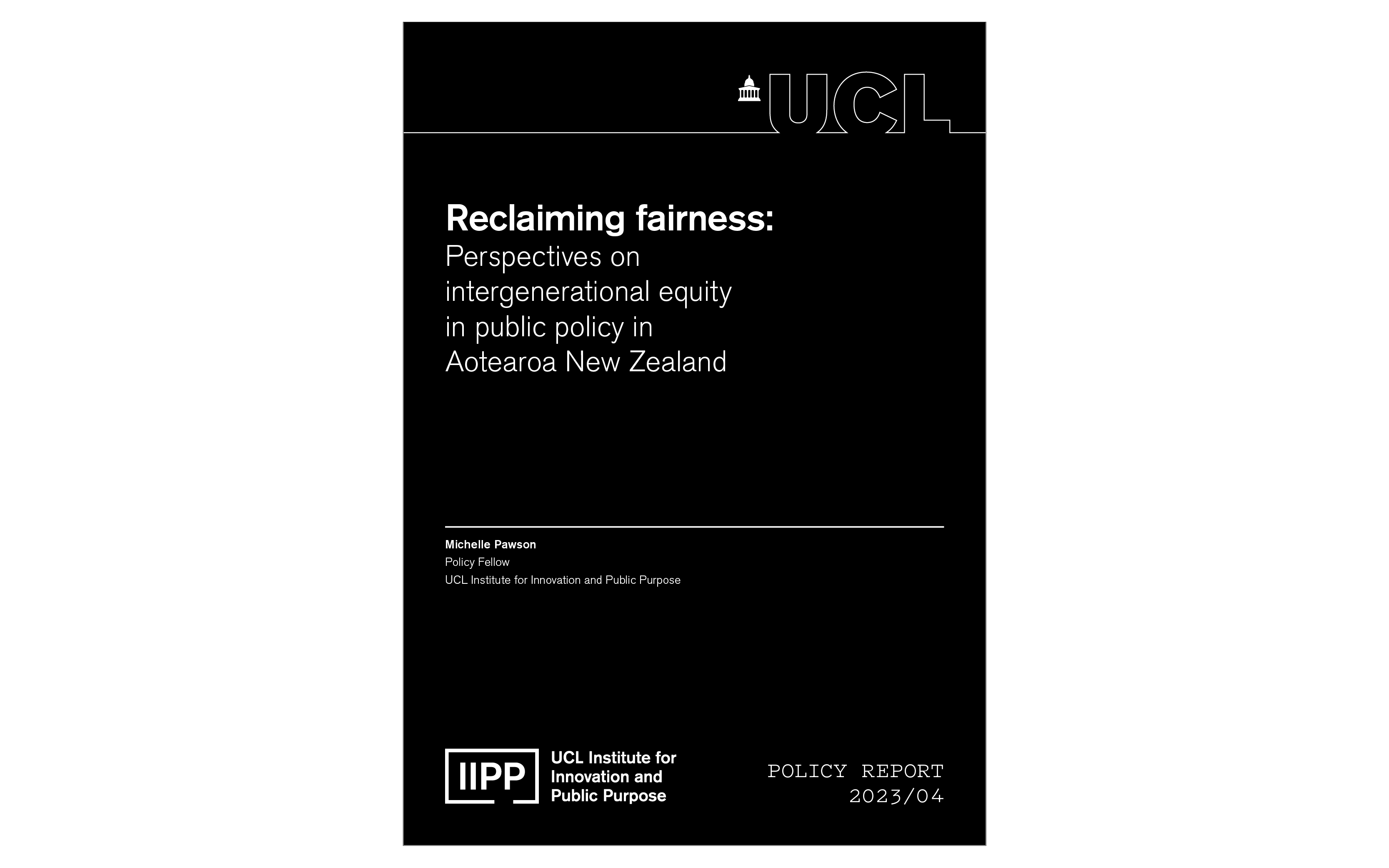Reclaiming fairness: Perspectives on intergenerational equity in public policy in New Zealand
Authored by Michelle Pawson

12 September 2023
UCL Institute for Innovation and Public Purpose, policy report no. 2023/04
Reclaiming fairness: Perspectives on intergenerational equity in public policy in Aotearoa New Zealand
Aotearoa New Zealand has historically been a petri dish of innovation and enlightenment in the realm of public policy. From the establishment of a treaty with tangata whenua/Māori (Indigenous peoples) to granting women the right to vote, the early adoption of social welfare, no-fault accident compensation, marriage equality and environmental protection, New Zealanders have long prided themselves on their commitment to ‘fairness’. However, as global and domestic challenges mount, there is increasing acknowledgment that the country may have lost sight of what ‘fair’ means.
A recent public policy wellbeing review by the New Zealand Treasury (Te Tai Waiora: Wellbeing in Aotearoa 2022) points to the possibility that, for the first time in recent history, the next generation will not be better off than current generations. This finding is not unique to New Zealand, but it reflects a broader concern about the future impact of public policy. In the face of a confluence of major challenges, including environmental degradation, biodiversity loss, climate change, financial instability, social inequality and technological disruption, there is a growing recognition that current public policy systems are failing to deliver effective solutions and to cope with increasing uncertainty (Schick 1996; Weijers and Morrison 2018; Mazey and Richardson 2021; PCE 2021; NZPC 2023).
The research that underpins this paper sought to better understand these concerns by exploring values, intergenerational awareness and anticipation within the public policy system. The underlying theory of change is centred on the need to shift the public policy system towards a long-term, intergenerational approach that values Indigenous perspectives and non-material value by prioritising sustainability, equity and innovation. The aim is that in doing so it will enable a more anticipatory, resilient and adaptive system that drives prosperity for all. This requires moving away from shortterm gains and recognising the generations of people who will live with the consequences of today’s choices, ensuring that present-day decision-makers are not borrowing from the future.
Authors
- Michelle Pawson | Policy Fellow in the IIPP Policy Studio, UCL Institute for Innovation and Public Purpose (IIPP).
Reference
Pawson, M. (2023) Reclaiming fairness: Perspectives on intergenerational equity in public policy in Aotearoa New Zealand. UCL Institute for Innovation and Public Purpose, Policy Report 2023/04, available at: https://www.ucl.ac.uk/bartlett/public-purpose/publications/2023/sep/reclaiming-fairness-perspectives-intergenerational-equity-public-policy
 Close
Close

